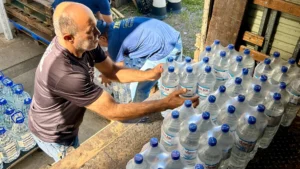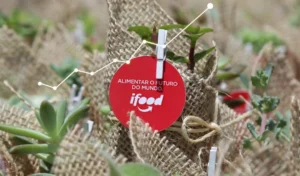The whole world has been looking for more sustainable options to replace the use of plastic, especially in the packaging of the products we consume. In Brazil, this issue is no different or less urgent: the country is the fourth largest producer of plastic waste in the world, according to the most recent data from the NGO WWF (World Wide Fund For Nature), consolidated in 2019.
To reduce the consumption (and, consequently, the disposal) of plastic, Brazilian companies and researchers have been testing biodegradable raw materials to replace it. Bamboo, for example, can be used to make straws; cassava becomes cups, trays and other packaging. Even fungi, such as mushrooms, and stone wool are being evaluated as alternatives.
“Today we have great substitutes for plastic, which are raw materials that come from renewable sources. Those that have been gaining ground in the market are paper, sugar cane, corn starch and cassava. Of these, the ones that currently have high-scale production power are paper and sugar cane”, says Alexandre Lima, Sustainability Manager at iFood.
When talking about delivery, this challenge becomes even more relevant, especially in the context of consumer culture that encourages the single use of plastic cups, cutlery and packaging before throwing them in the trash.
To change this habit, iFood made a commitment to eliminate plastic pollution in delivery by 2025 in the program iFood Regenerates. To this end, it works on several fronts, such as encouraging the use of sustainable packaging and strengthening recycling with the implementation of new waste disposal points, in addition to optimizing recycling cooperatives.
For Alexandre, the more companies show interest in acquiring renewable raw materials, the more their price will be balanced – and the faster their use will be as common as that of plastic.
“The participation of companies in the acquisition of these sustainable alternatives is important both to positively impact the future of the environment and generations and to balance prices, ensuring that more and more people have access to them, instead of plastic”, he explains. Alexander. “Plastic is a recyclable material, but in Brazil we are still far from achieving the percentage of correct disposal and necessary recycling.”
In the program Friends of Nature, created in 2020, the Brazilian foodtech invites partner restaurants to be part of the initiative to reduce the use of plastic. “Restaurant owners are invited to participate in the program, and, on the app, customers can see which restaurants are committed to the cause. When placing the order, they choose whether or not they want single-use items, such as cutlery and plastic straws,” says Alexandre.

Deepen your knowledge about sustainability with this article from iFood News.


